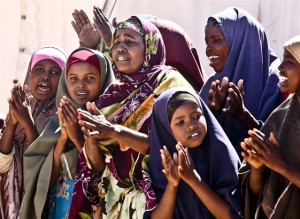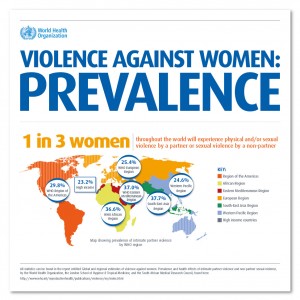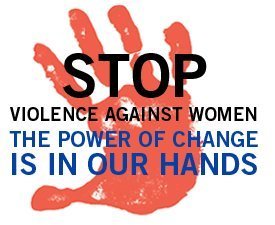Ending the Pattern of Pervasive Violence Against Women
Sep 9th, 2014 | By admin | Category: Reproductive Rights/Women's RightsBy Suzanne York, www.howmany.org
They are sent to protect citizens in horrific conflict and refugee conditions in countries in turmoil. Women in these situations are incredibly vulnerable. Yet sadly, Human Rights Watch has found that African Union (AU) peacekeepers in Somalia rape women seeking medicine on their bases and routinely pay teenage girls for sex.Somalia has been a failed state for decades. Tens of thousands of Somalis have been displaced during this time, by conflict, violence and famine.
According to a recent Human Rights Watch report, The Power These Men Have Over Us,” the AU soldiers have used a range of tactics, including humanitarian aid, to coerce vulnerable women and girls into sexual activity. They have also raped or otherwise sexually assaulted women who were seeking medical assistance or water at the African Union Mission to Somalia bases.
The report’s authors emphasize what’s at stake:
The line between sexual exploitation and sexual abuse is a fine one given the vulnerabilities of the women and the power and financial disparities between them and the soldiers. The women who are sexually exploited become vulnerable to further abuse at the hands of the soldiers, and are also exposed to serious health risks. Several women said that the soldiers refused to wear condoms and that they had caught sexually transmitted infections as a result.
The AU soldiers are in Somalia to help restore order and defeat the Islamist militant group al Shabaab. The peacekeeping troops are made up of soldiers from six African countries and are funded in part by the United Nations, United States, and the European Union. They are immune from prosecution by the government of Somalia, with responsibility falling on their own governments.
Violence Across the Globe
The United Nations estimates that sexual violence in conflict zones affects millions around the world, primarily women and girls:
- In the Democratic Republic of Congo approximately 1,100 rapes are reported each month, and it is believed that over 200,000 women have suffered from sexual violence in that country since armed conflict began;
- The rape and sexual violation of women and girls is pervasive in the conflict in the Darfur region of Sudan;
- Between 250,000 and 500,000 women were raped during the 1994 genocide in Rwanda.
While not an immediate solution for the Somali women, there are some policies that should be implemented to aid women and girls facing sexual violence around the world.
The Convention on the Elimination of All Forms of Discrimination against Women (CEDAW)
CEDAW is an international agreement that requires that countries party to the Convention take all appropriate steps to prevent, eradicate and punish violence against women and girls. However, the UN states that the “continued prevalence of violence against women and girls demonstrates that this global pandemic of alarming proportions is yet to be tackled with all the necessary political commitment, action and resources.”
Shamefully, the United States is one of a handful of countries that has not ratified CEDAW. Ironically, it is joined by Somalia.
International Violence Against Women Act (I-VAWA)
I-VAWA is proposed congressional legislation that makes ending violence against women and girls a top U.S. diplomatic priority, including enabling the U.S. government to develop a faster and more efficient response to violence against women in humanitarian emergencies and conflict-related situations.
To take action, urge your Senators to help pass the International Violence Against Women Act (S. 2307).
Protect and EmpowerOne of the rape victims told Human Rights Watch “I was scared he would come back and rape me again or kill me. I want the government to recognize the power these men have over us and for them to protect us from them.”
Is that too much to ask? Obviously the Somali government is unable to protect its own citizens, and the peacekeepers sent to do just that have failed, so it is up to the international community – the UN, other governments, and civil society – need to find the will to step up and do it. The rest of us need to let the world know violence against women is unacceptable.
Suzanne York is a senior writer with the Institute for Population Studies.



